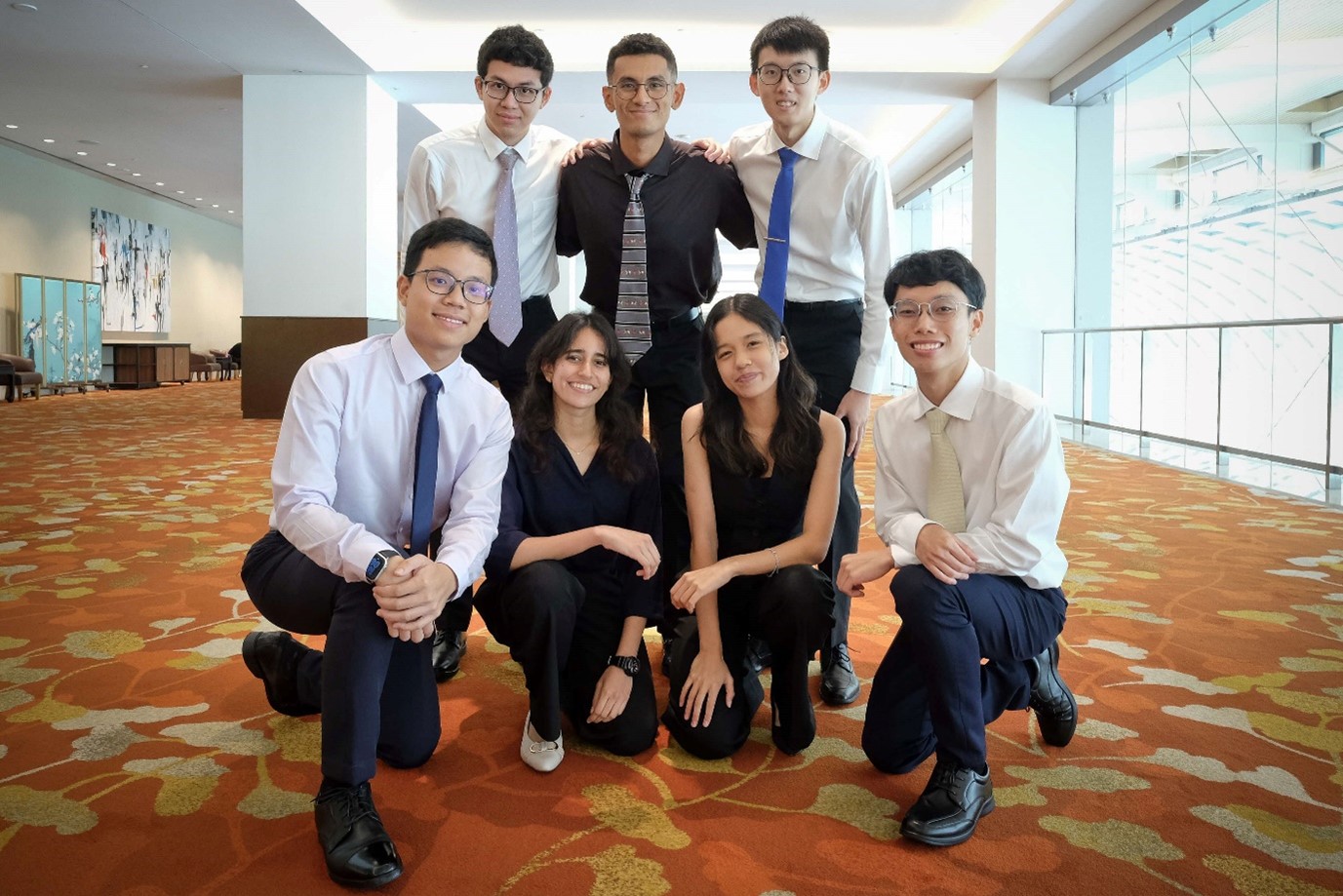 HTX’s latest scholars: (front row, left to right) Tit Shao En, Avanie Aniruddha Joshi, Kara Ang, Yee Jia Rong, (back row, left to right) Liu Yucen, El-Khalish Bin Amir, and Darryl Lim. (Photo: HTX/Alywin Chew)
HTX’s latest scholars: (front row, left to right) Tit Shao En, Avanie Aniruddha Joshi, Kara Ang, Yee Jia Rong, (back row, left to right) Liu Yucen, El-Khalish Bin Amir, and Darryl Lim. (Photo: HTX/Alywin Chew)
HTX awarded scholarships to seven recipients at the Singapore Police Force Scholarship and Ministry of Home Affairs (MHA) Scholarship Award Ceremony 2025, held at the Marina Bay Sands Convention Centre on 13 August 2025.
MHA offers a range of scholarships, including the HTX Scholarship, which recognises outstanding individuals who embody HTX’s vision to exponentially impact Singapore’s safety and security. This year, a total of 42 scholarships were conferred across both uniformed and civilian categories.
Chosen among Singapore’s top STEM (Science, Technology, Engineering, and Mathematics) talent, the HTX scholars will pursue studies in various disciplines – from engineering to computer science – at prestigious institutions.
We caught up with two of them on the back of the awards, to uncover the passions and motivations driving their pursuit of excellence.
El-Khalish Bin Amir
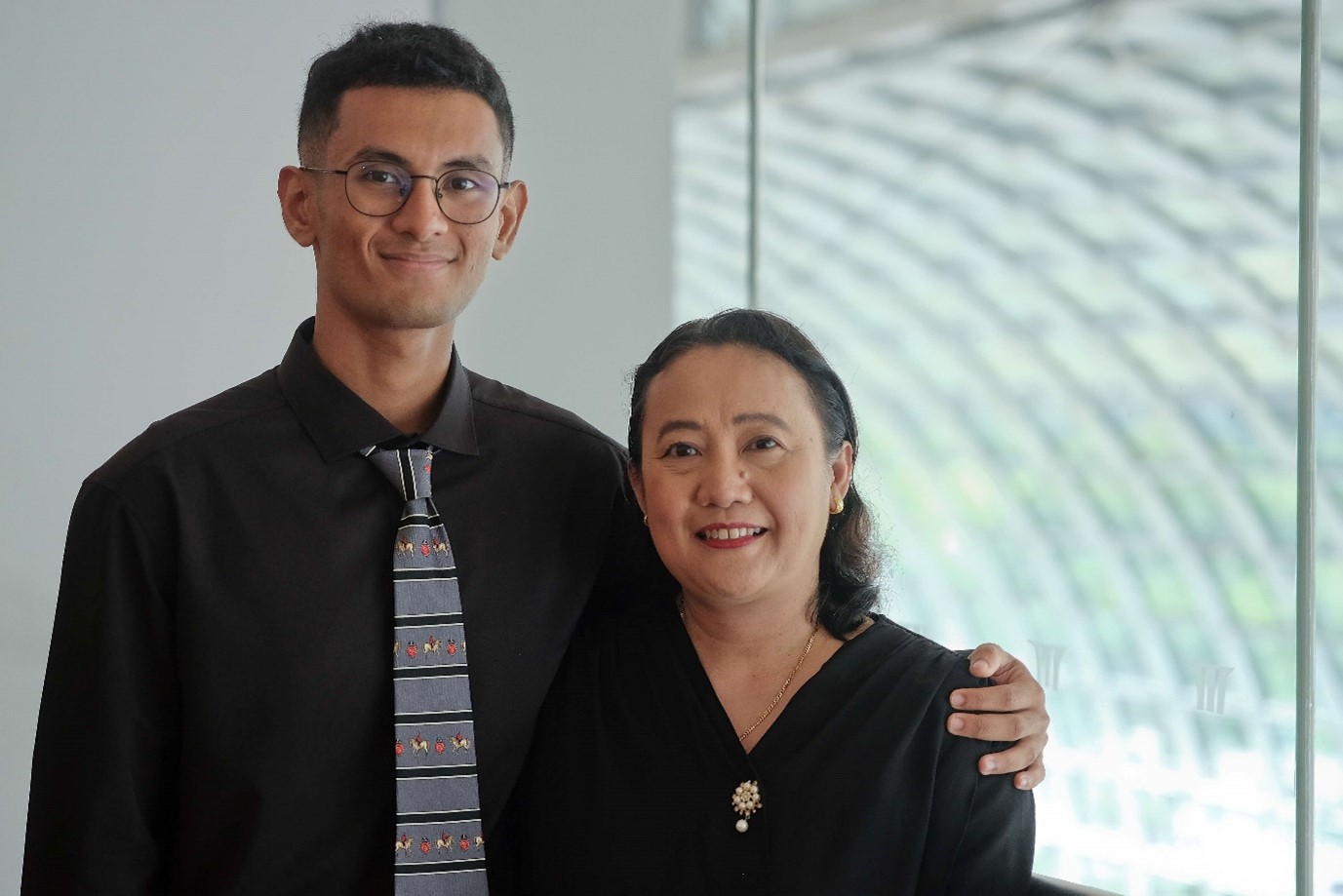 Khalish with his mother at the Singapore Police Force Scholarship and Ministry of Home Affairs (MHA) Scholarship Award Ceremony. (Photo: HTX/Alywin Chew)
Khalish with his mother at the Singapore Police Force Scholarship and Ministry of Home Affairs (MHA) Scholarship Award Ceremony. (Photo: HTX/Alywin Chew)
This Singapore Physics Olympiad 2023 medallist has long been fascinated by the mechanics behind everyday objects. This passion led the self-professed tinkerer to an internship at semiconductor firm STMicroelectronics, where he discovered how engineering could be harnessed for positive change. The 19-year-old now plans to major in mechanical engineering and is looking forward to developing tangible solutions to real-world problems at HTX.
What does engineering for good mean to you?
It means using creativity to tackle the challenges of the future. During my internship at STMicroelectronics, I was inspired by how every employee I met could explain how their work contributes to society – whether through developing sustainable materials to fight global warming or driving automation in developing countries. I hope to create that same kind of positive impact at HTX.
How do you envision yourself engineering solutions for good?
Though I’d love to develop a humanoid robot with full mobility and as many joints as a human, the tech just isn’t there yet. More realistically, I believe robotics is moving toward bio-inspired robots that mimic the movements of animals and
insects. For example, I came across a snake-like robot capable of slipping through rubble to locate survivors in disaster zones. Such innovations can help to lower risks for frontline officers, and I want to help enable them.
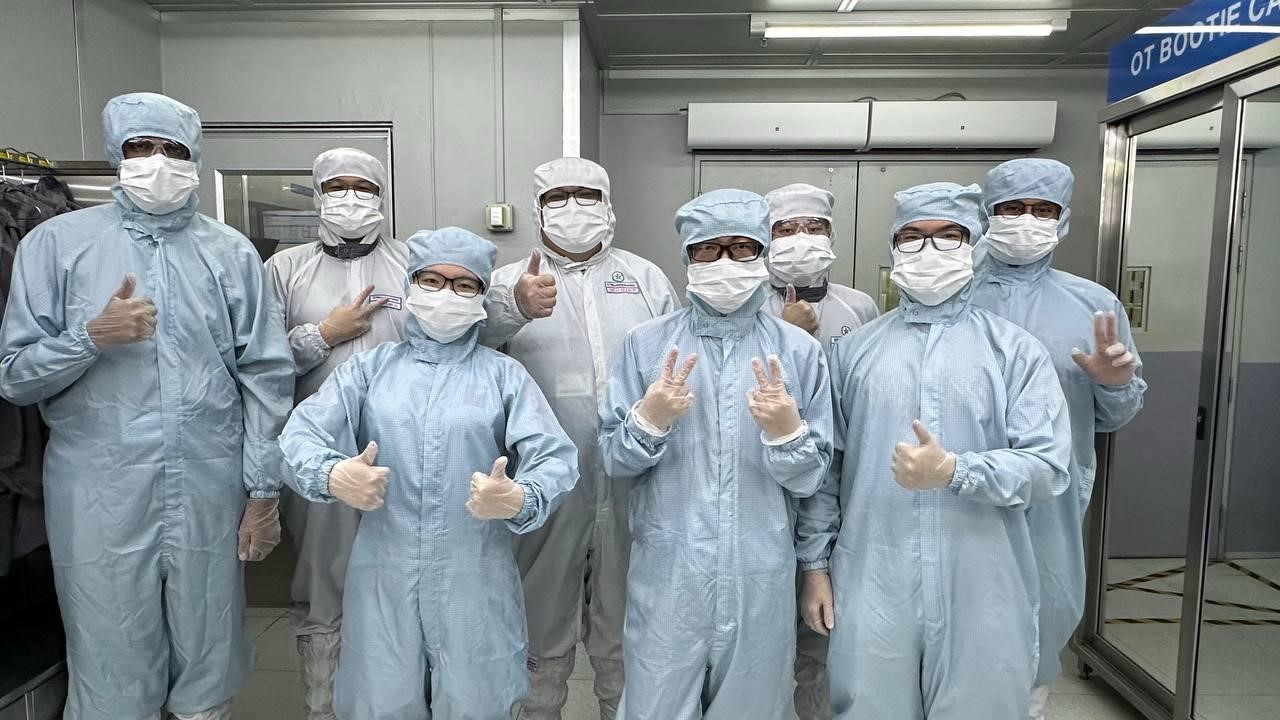 Khalish (second row, first from right) at a wafer fabrication site during his internship with STMiroelectronics. (Photo: El-Khalish Bin Amir)
Khalish (second row, first from right) at a wafer fabrication site during his internship with STMiroelectronics. (Photo: El-Khalish Bin Amir)
What’s an overlooked area whereby mechanical engineering can further improve public safety for Singaporeans?
Flood control systems. Singapore is prone to flooding due to heavy rainfall, which is expected to increase due to climate change. Thus, mechanical engineering can play a big role in mitigating flooding through solutions such as flood barriers and improved drainage systems.
If you could redesign a technology to make it 10 times more impactful, what would it be?
The nuclear reactor. Imagine if we could make it 10 times smaller or more efficient – it would solve major issues related to energy, especially for a land-scarce country like Singapore! This would, in turn, further advance engineering and science – powering everything from Artificial Intelligence (AI) to high-performance computing.
Avanie Aniruddha Joshi
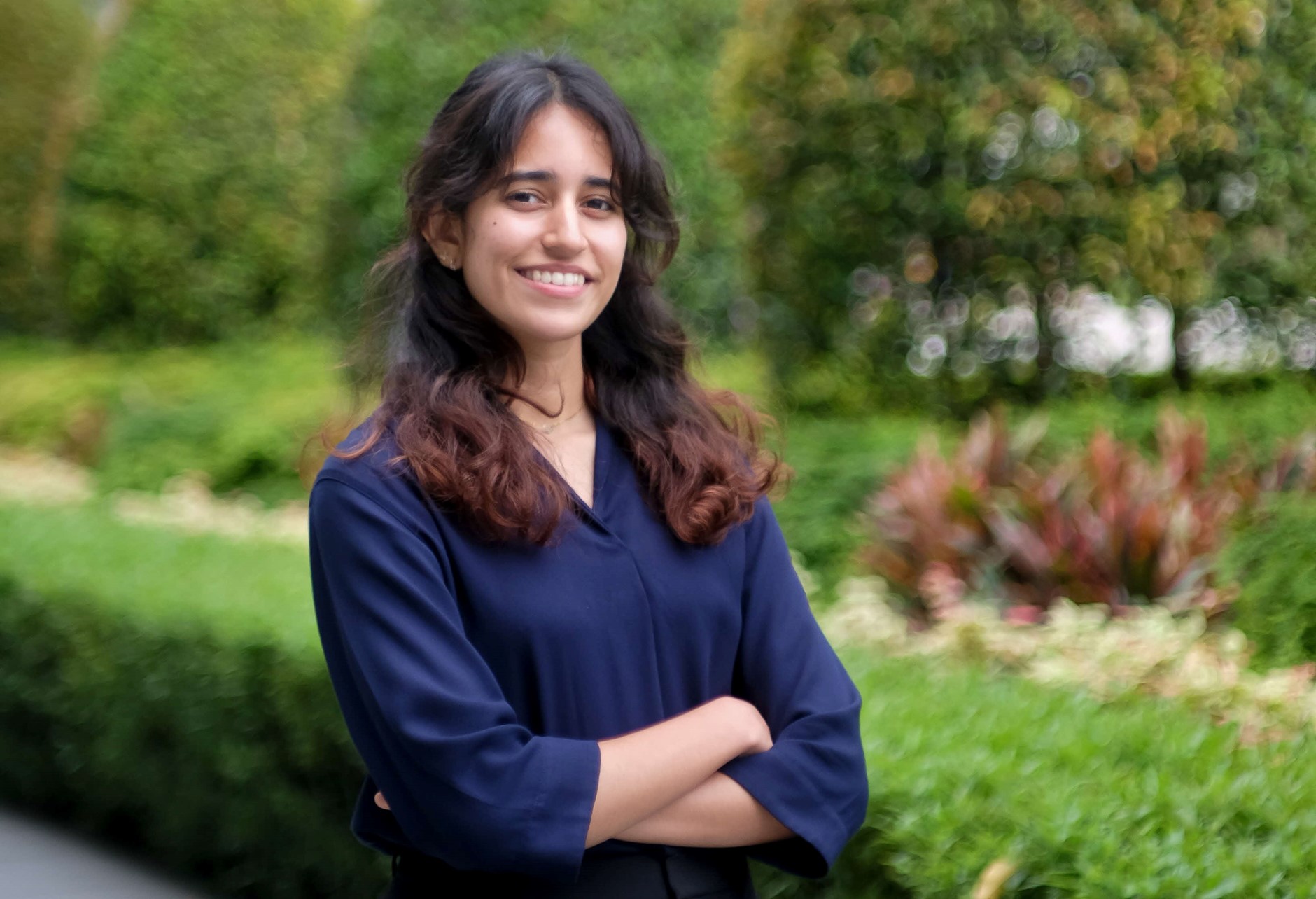 Avanie is looking forward to starting her career in the field of forensics. (Photo: HTX/Alywin Chew)
Avanie is looking forward to starting her career in the field of forensics. (Photo: HTX/Alywin Chew)
Growing up, this chemistry aficionado recognised both the power of science to improve lives through resourceful innovation as well as its potential for harm, such as in the creation of chemical weapons. She later cultivated an interest in medicinal chemistry during a job-shadowing stint at Jurong Polyclinic, where she learnt about the role of pharmaceuticals in supporting Singapore’s healthcare system. Now a first-year chemistry major at Imperial College London, she’s gearing up for a career in forensics at HTX, where she hopes to help tackle pressing societal threats.
HTX’s work involves crossing science with public service. What excites you about working at this intersection?
Their work is really meaningful – from the CBRNE (Chemical, Biological, Radiological, Nuclear, and Explosives) team detecting threats before they cause harm, to the FIRST (Forensic Innovation and Research for Strategic Transformation) Lab identifying new psychoactive substances that are on the rise. The opportunity to use science to safeguard our social fabric particularly appeals to me.
What has been your most eye-opening moment as a university undergraduate?
At Imperial College London, I’ve witnessed a strong culture of collaboration between research institutions and private companies. This kind of partnership brings together diverse perspectives, which can inspire new ideas and fresh approaches to existing problems. While I believe research should ultimately serve the public, taking into consideration aspects like commercialisation and economic viability can make innovations more tangible and increase their chances of long-term success.
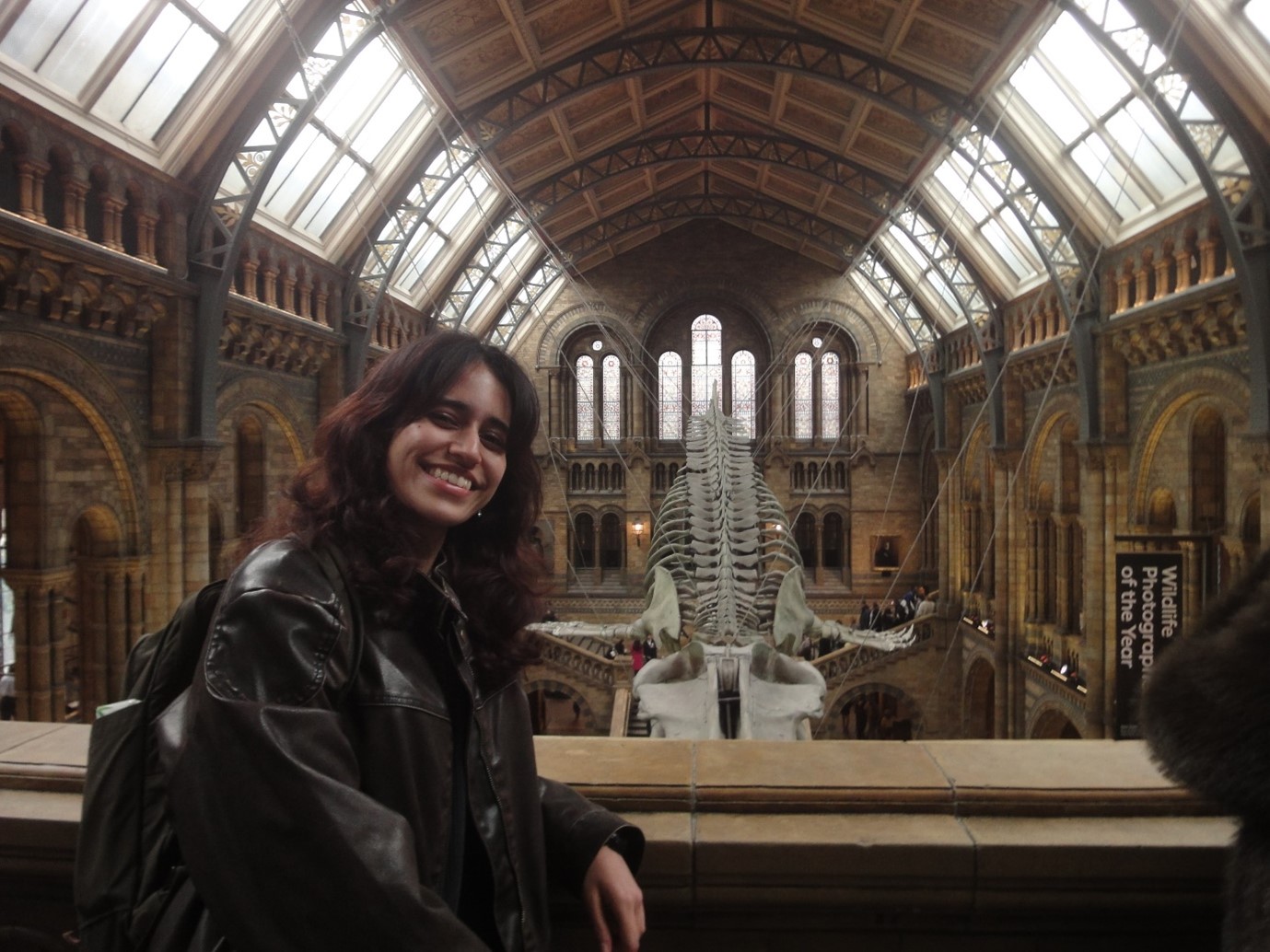 Avanie at the Natural History Museum in London, where she’s pursuing her studies. (Photo: Avanie Aniruddha Joshi)
Avanie at the Natural History Museum in London, where she’s pursuing her studies. (Photo: Avanie Aniruddha Joshi)
Chemistry is a double-edged sword, with the potential to both protect and harm. How can we navigate it responsibly?
It certainly is. Just look at the abuse of anaesthetics that are essential in lifesaving surgeries. In such cases, robust legislation and policymaking make all the difference in protecting the public from harm. There are many other intersections between science and fields such as law and technology that can reinforce the positive impact of our work.
What’s an emerging public safety trend that you’re closely watching?
I’m intrigued by how technology and chemistry can be combined to help us achieve better results, faster. With the help of AI, we can not only discover new compounds and proteins a lot more quickly but also detect threats without having to test them individually.
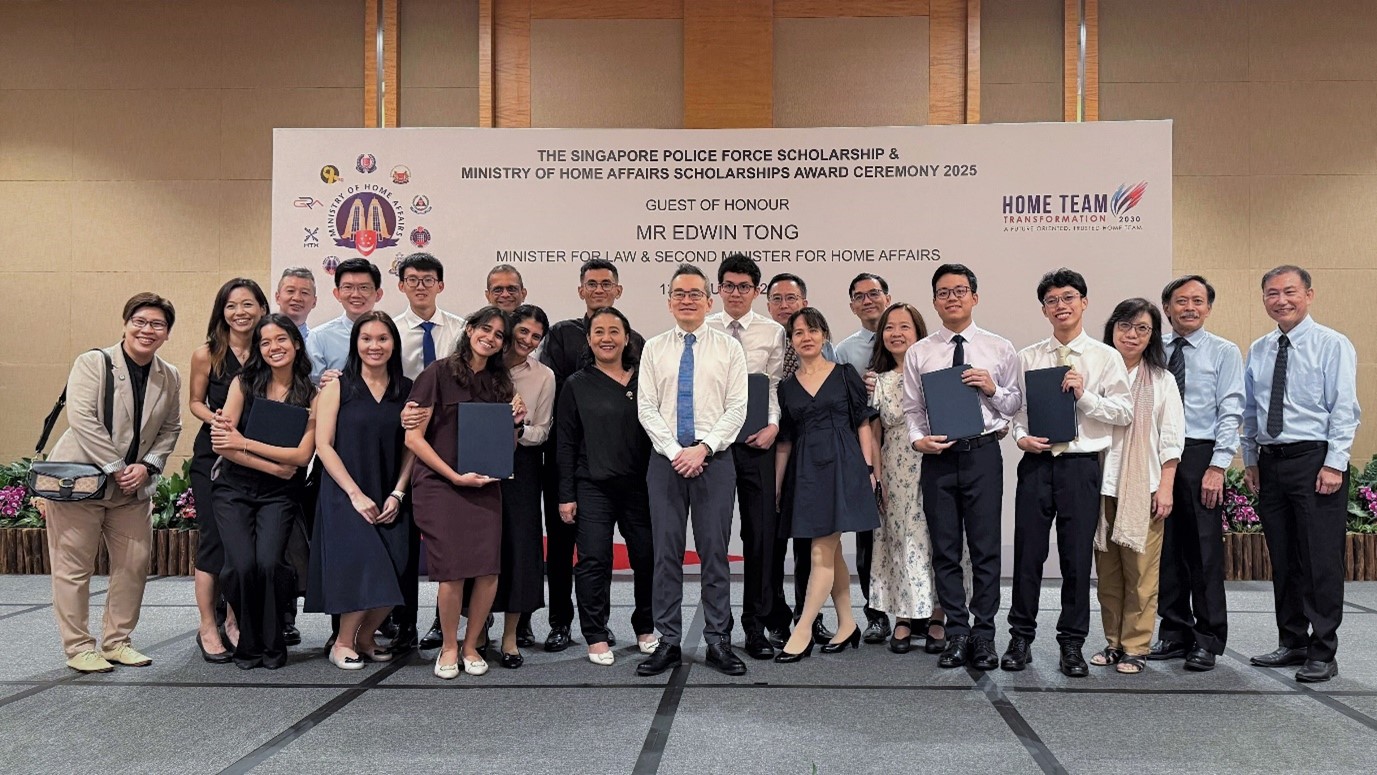 HTX Chief Executive Chan Tsan (centre), HTX Deputy Chief Executive (Operations) Chen Yeang Tat (right) and HTX Human Resource Director Lim Puay Sze (left) pose with HTX scholars and their family members at the awards dinner. (Photo: HTX)
HTX Chief Executive Chan Tsan (centre), HTX Deputy Chief Executive (Operations) Chen Yeang Tat (right) and HTX Human Resource Director Lim Puay Sze (left) pose with HTX scholars and their family members at the awards dinner. (Photo: HTX)

